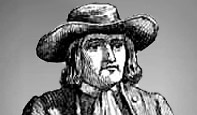If one wants to do anything in this world then one has to grow out of the kindergarten, and learn to live. Communion between God and man should be the most natural of relationships. Self-consciousness has no place. The great virtue of the psalms is that the psalmist had no doubt at all how to address his God, whether in praise or anguish.
Jeremiah prophesied there would be a time when God would write His laws in men’s hearts. Jesus extended that vision to a time when God would live with and in men. But the response must be to live with and in Him: not by seeking a blank cheque to heaven, nor by seeking leave to do exactly as one likes; but by entering into His creative power, so far as circumstances permit. Modern science allows for this to happen!
A lesser miracle would be to fill the empty pews of the C.of E. and re-interpret Christianity so that it satisfied the souls of men. The response of the clergy to the shame of the empty pews is to say, “Get rid of the pews”; and then one no longer has to look on the shame, and perhaps can forget it. But an institution like the Army is only a shell, within which training and discipline can weld the members into a coherent fighting force. It is the men who are ultimately the Army, however necessary the shell is to give them coherence. Similarly it is the men and women in the pews who are ultimately the Church, not the shell and clerical organization which contains them. The only way to fill the pews, or the Meeting House, is to make religion satisfy the human soul; there is no other way.
In my book I created a theory of consciousness, as I had to in order to write it at all; and so created the very beginnings of a theory of thought. In doing so, I necessarily swept away many of the encrustations of traditional religion; if only because in any indwelling all beliefs are hazarded, no dogma is sacred, or the indwelling itself will be destroyed. The converse, of course, is equally true; a rigid theology if enforced, however necessary it may be to the life of an historic Church if it is to survive, effectively prevents communion between God and man, and therefore greatly inhibits communion between men as well. But with a theory of consciousness, the door is wide open for men to dare to create what they will. Science allows it; though the laws of Creation may limit what is possible.
Nor does it make much difference how a man spends his daily life; there are no boundaries in the spiritual world, even if there are some forbidden areas. Religion is not in a compartment of its own, separated from the professions. The preacher who has never experienced what is vulgarly called a “miracle” is like the man who has studied Demosthenes or Tom Erskine, but never opened his mouth in Court or questioned a witness. Academic learning is a noble study; it is essential to a full understanding of any subject. The man who has relied only on practical experience is likely to have developed as many bad habits, as good ones. But experience is crucial, and a more rapid teacher. The decisive question always is, “Can you do it?”
